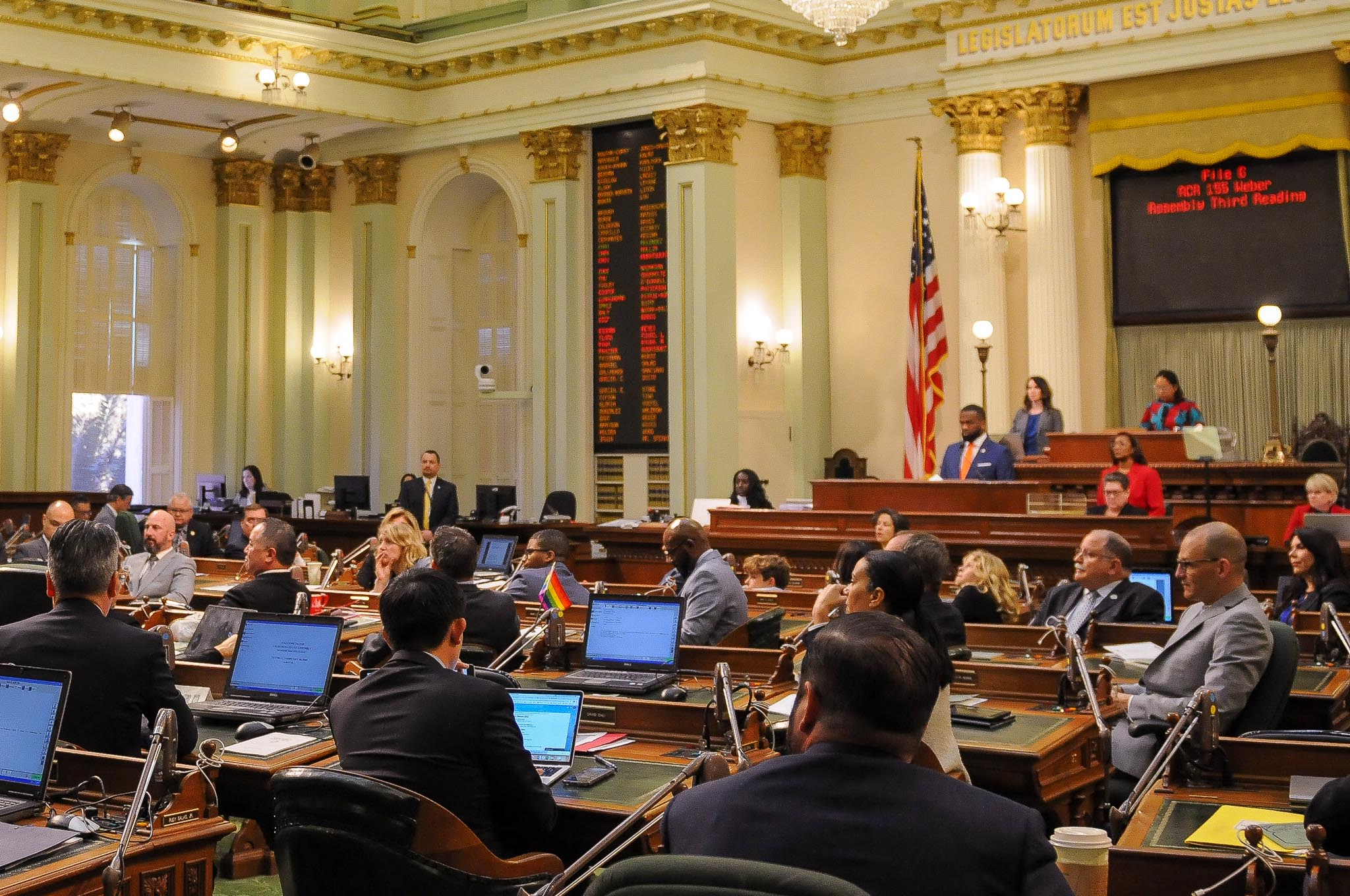
Law Library - Old Law Books. (Photo: jjphotos, Shutterstock)
Are the Following Bills Substantive or Nonsubstantive?
Those types of bills remain in the respective Rules Committee until substantive language is amended into the bill
By Chris Micheli, January 30, 2023 7:15 am
Why and when does the distinction between substantive and nonsubstantive proposed changes to California statutes matter in pending legislation? It matters for the Assembly or Senate Rules Committees to refer a bill to a policy committee. That is because neither Rules Committee will refer a bill to a policy committee if the bill makes a nonsubstantive change to existing law (i.e., it is a “spot bill”) or it makes a statement of legislative intent (i.e., it is an “intent bill”). Those types of bills remain in the respective Rules Committee until substantive language is amended into the bill.
Despite this simple sounding rule, sometimes whether a bill makes a substantive or nonsubstantive change in existing law is not clear. The following examples attempt to explain the distinction between substantive or nonsubstantive changes to existing statutes:
Until January 1, 2024, 2034, the director may authorize advance payments from a grant awarded pursuant to this section. The advance shall not exceed 25 percent of the total grant award. The director may authorize a greater amount, not to exceed 50 percent of either the total grant award or the cost of equipment, whichever amount is less, for the purpose of purchasing necessary equipment. [This is a substantive law change because it would extend this existing authorization for an additional ten years.]
The Attorney General shall provide investigative assistance assistance, including, but not limited to, all investigative notes, reports, and related materials on individuals listed in the Prohibited Armed Persons File, to local law enforcement agencies to better ensure the investigation of individuals who are armed and prohibited from possessing a firearm. [This is a substantive law change because it would provide a definition of “investigative assistance.”]
Section 68555 of the Government Code is repealed.
68555. The Judicial Council shall establish judicial training programs for individuals who perform duties in domestic violence matters, including, but not limited to, judges, referees, commissioners, mediators, and others as deemed appropriate by the Judicial Council. The training programs shall include a domestic violence session in any orientation session conducted for newly appointed or elected judges and an annual training session in domestic violence. The training programs shall include instruction in all aspects of domestic violence, including, but not limited to, the detriment to children of residing with a person who perpetrates domestic violence and that domestic violence can occur without a party seeking or obtaining a restraining order, without a substantiated child protective services finding, and without other documented evidence of abuse.
[This is a substantive law change because it would repeal an existing statute.]
It is the intent of the Legislature to enact subsequent legislation for a flood protection general obligation bond act, in the amount of ____ dollars ($____), to be known as the California Flood Protection Bond Act of 2024 and to be submitted to the voters at the next general election. [This is a nonsubstantive law change, which we call an intent bill (rather than a spot bill) because it merely states the intent of the Legislature.]
This chapter shall remain in effect only until January 1, 2024, 2029, and as of that date is repealed. [This is a substantive law change because it would extend an existing sunset date and allow the current statute to remain in effect longer.]
For purposes of this section, “Gold Star Family Member” means a parent, sibling, spouse, partner, or child of a fallen service member of the Armed Forces of the United States who is in receipt of a Gold Star from the United States Department of Defense in honor of the fallen service member. [This is a substantive law change because it would add a definition to existing law.]
This chapter shall be known known, and may be cited cited, as the California Work Opportunity and Responsibility to Kids Act, Act and may also be cited as the CalWORKs program. [This is a nonsubstantive law change because it would insert two commas and delete one comma.]
Subject to an appropriation in the annual Budget Act for the express purpose of this paragraph, an individual 55 years of age or older shall be eligible for the program established in subdivision (a) if the individual’s immigration status is the sole basis for their ineligibility for CalFresh benefits. [This is a substantive law change because it would repeal an existing limitation on eligibility for specified individuals.]
Nothing in this section precludes This section does not preclude a victim, witness, or next of kin of the victim victim, or immediate or extended family members of the victim from requesting notification using an automated electronic notification process, if available. [The first change is a nonsubstantive change because it reflects a current bill drafting principle to state provisions in the active voice, but the second change is a substantive law change because it expands the scope of the statute.]
Notwithstanding Section 6388, whenever if a new or new, used, or remanufactured trailer or semitrailer with an unladen weight of 6,000 pounds or more that has been manufactured or remanufactured outside this state is purchased for use without this state and is delivered by the manufacturer, remanufacturer, or dealer to the purchaser within this state, and the purchaser drives or moves the vehicle to any point outside this state within 30 days from and after the date of delivery, or whenever a new or remanufactured trailer or semitrailer with an unladen weight of 6,000 pounds or more that has been manufactured or remanufactured in this state is purchased for use without this state and is delivered by the manufacturer, remanufacturer, or dealer to the purchaser within this state, and the purchaser drives or moves the vehicle to any point outside this state within 75 days from and after the date of delivery, there are exempted from the taxes imposed by this part, Part 1.5 (commencing with Section 7200), and Part 1.6 (commencing with Section 7251) the gross receipts from the sale of and the storage, use, or other consumption of the vehicle within the state, if the purchaser or the purchaser’s agent furnishes all of the following to the manufacturer, remanufacturer, or dealer: [This is a substantive law change because it would add a type of trailer or semitrailer that would qualify for the sales tax exemption.]
Every health care service plan that offers coverage for a service that is within the scope of practice of a duly licensed pharmacist may shall pay or reimburse the cost of the service performed by a pharmacist. [This is a substantive law change because it would change the statute from being permissive to being mandatory.]
18806. This part shall remain in effect only until January 1, 2024, and as of that date is repealed. [This is a substantive law change because it would repeal the sunset date and therefore make the statute permanent.]
- A Different Type of Legislative Statement? - December 12, 2024
- Service of Summons in California Civil Actions - December 11, 2024
- Sunset Clause Versus Repeal Clause - December 10, 2024



